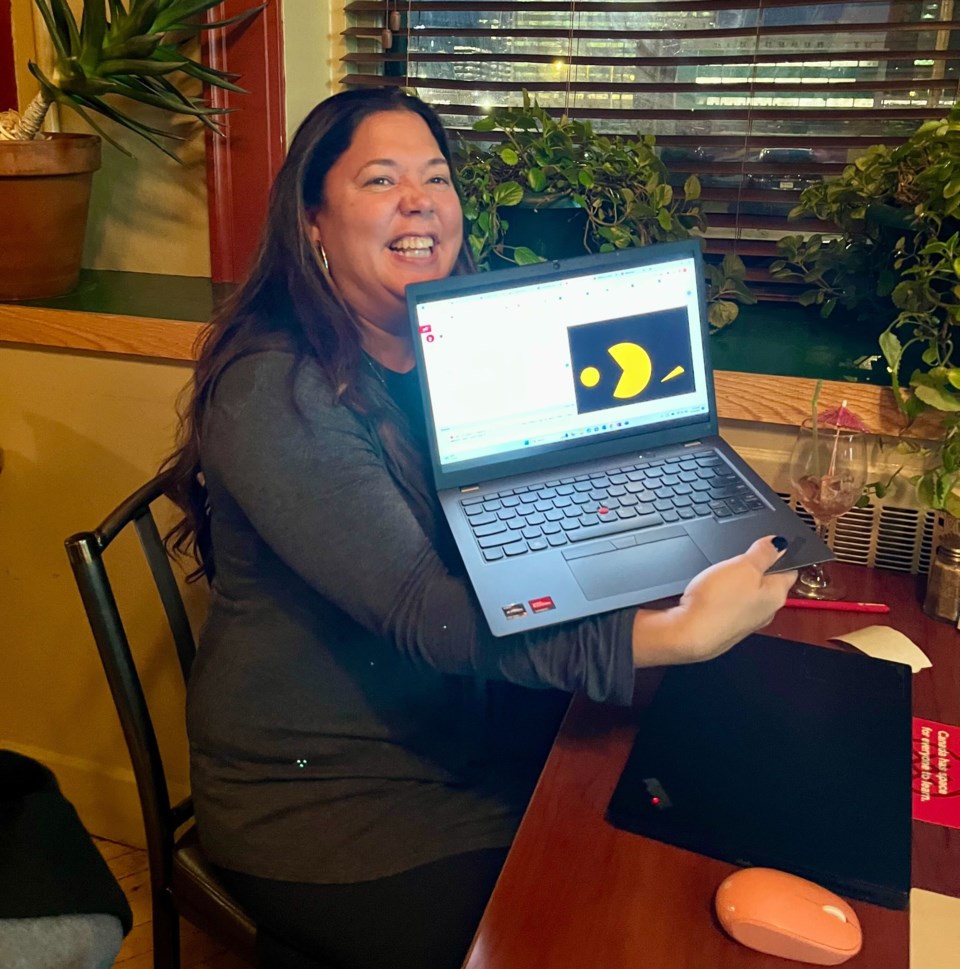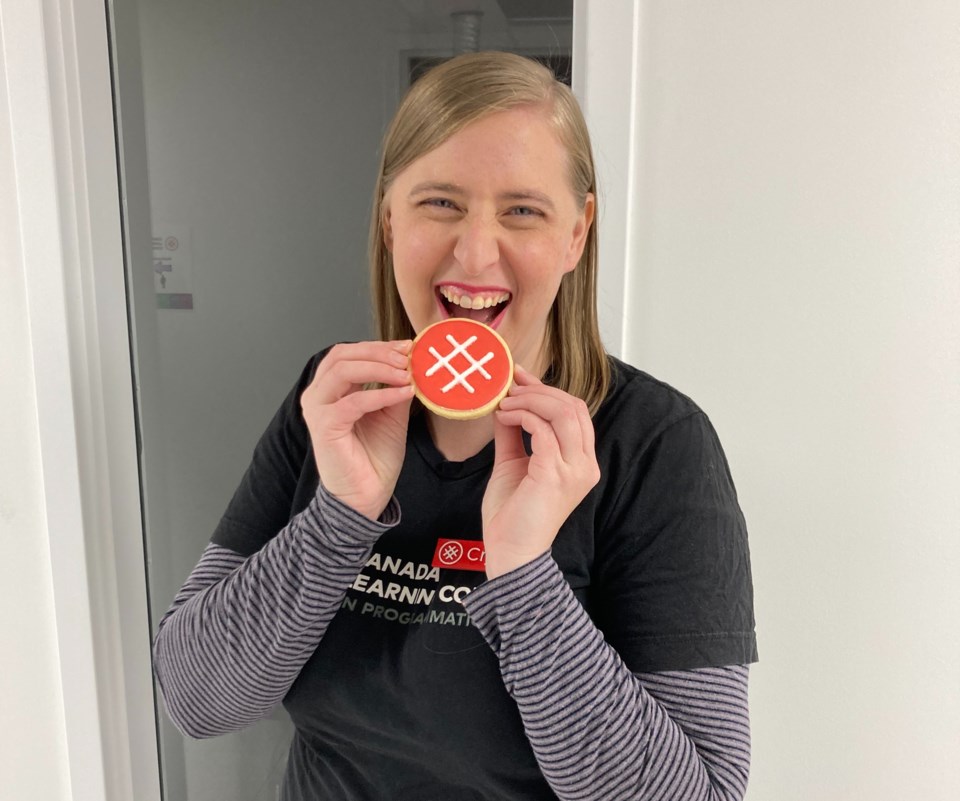In a world increasingly driven by data, a little bit of coding ability might prove beneficial not only for those looking to make a career in artificial intelligence (AI) or any other tech field.
“Code is now part of almost every field, like agriculture, marketing and health care, just to name a few,” said Crysta Whalley, chapter manager with Canada Learning Code (CLC), a not-for-profit organization aimed at delivering digital literacy to Canadians.
Whalley told BradfordToday and InnisfilToday that even working in fields and roles not directly related to coding, professionals can do better by having a basic understanding of how code works.
“We have a popular Canada Learning Code ‘Managing Data with SQL’ workshop, which is about learning to use and manipulate data from databases,” she said. “It’s a powerful language that allows us to extract useful insights from large quantities of information.”
Whalley noted that every industry, whether in the tech field or not, works with data.
“Understanding how databases are structured and how data can be pulled from a database is important to be able to design reports, extract insights and make data-driven decisions.”
With databases in so many workplaces, Whalley argues that it makes SQL relevant to a variety of roles in different sectors, such as government, marketing, sales, customer service and finance.
She recalled an instance in a workshop on Scratch, a programming language for kids, when a parent suddenly realized there was a connection between the programming activity and their professional experience.
“They pulled up their screen to share what they do on daily bases in the oil and gas industry and, similar to how we use Scratch, they said the program they use for work is also block-based," Whalley said.
Canada Learning Code workshops, in person or online, are generally two to three hours long, and there's always a hands-on component.

“Typically, the instructor introduces the topic, then demonstrates one initial bit of code, and then the learners get to add that bit of code to their projects in a short work period,” she added. “The instructor builds on that, and learners get to build again, and this repeats.”
Whalley explained that one thing which makes the CLC workshops so beginner-friendly is the ratio of one mentor for every four learners, which is helpful to students during the work periods.
“If the code isn’t working, there is someone right there to help learners work through and learn how to debug their code," she said.
Although everyone learns the same basic project, Whalley said there is so much space for creativity and making projects your own. She gave an example of this occurring at a ‘Paint Night with Code’ workshop.
“In this workshop, you use code to make interactive art, and one learner really wanted to change her project to make it a PacMan instead. She worked hard and was able to achieve her vision," she said.
Whalley stressed that Canada Learning Code brings accessible computer science education to all people in Canada so that everyone can create with technology.
“The workshops are all intentionally hands-on, which means learners actively code or make something tangible in every event.”
The CLC mentors and instructors are volunteer positions, typically filled by professionals who work in the industry or university computer science students.
“Our mentors are passionate about tech and are committed to supporting all learners to ensure they learn the digital skills they need to thrive in today’s world," Whalley said.
Other volunteer roles with CLC include chapter leads and co-ordinators who organize event-based opportunities in their local communities.
The not-for-profit group presently has 23 chapters in Ontario and across Canada. CLC has a specific focus on empowering people who have been historically and currently underrepresented in tech, including women, girls, and racialized and Indigenous communities.
To learn more about Canada Learning Code and its next events, visit www.canadalearningcode.ca.



